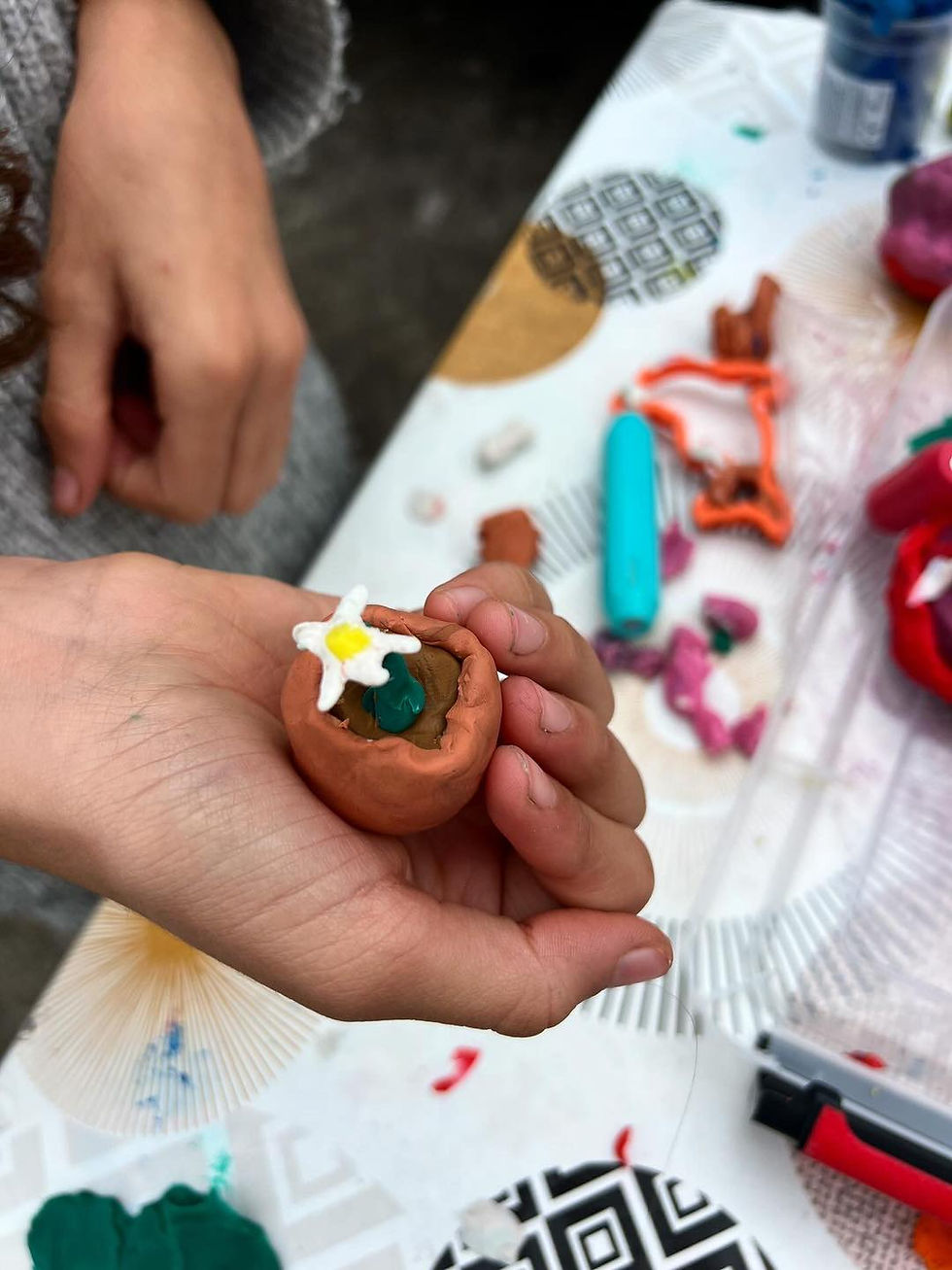End of week one, group one: arts based training for psychosocial support
- Art Refuge

- Feb 12, 2017
- 2 min read

DULIKHEL, NEPAL
Reflections on week one
Art Refuge UK were delighted to have the opportunity to work again with counsellors from the Transcultural Psychosocial Organisation (TPO), providing some additional, residential training for their new recently qualified and trainee counsellors who will be going out to pioneer psychosocial counselling in a range of contexts. Whilst not usually based in the same location, the counsellors will be working in the same district and so will be able to be of support to one another. Most of the group had not received arts based training before and their feedback was very positive, including:
They found this a very helpful way to express their feelings.
They felt that these approaches could also support clients to express their emotions, experiences and things they cannot, or do not wish to talk about.
The training helped to provide quicker access to emotions and experiences that could take a long time to touch if only talking about them and
That the training had taught them to think about the client’s strengths and resources, not only their challenges and difficulties.
The building up of relationships and networking opportunities was a key part of the week: excursions after the training day ended and singing and dancing each evening, provided them with informal opportunities to do this.
Spoken and shared language
Fortunately, one of our team can speak some Nepali and participants arrived with limited spoken English, so the training was delivered mostly in Nepali with translation support. The experiential style of the training helped to overcome language barriers and one participant commented that they often work with people who speak other languages and who would not understand Nepali, so these creative approaches could be very helpful.
Training content
The training started with participants making peg dolls and then a safe place for them. We intentionally used local materials and this activity also uses scraps of materials which helps participants think about how art can use a wide range of materials, not just typical ‘art materials’, introducing dry materials, paint, modelling using salt dough, art with found objects, collage and mask-making. The theme of safe places and containment continued through the week as we addressed ideas of ‘why art in psychosocial support’?, the impact of trauma and ideas of vulnerability and resilience. The participants worked individually, in pairs, in small groups and large groups, experiencing the art materials for themselves, enabling a lived experience to accompany the theory that we pulled out through our discussions. On the last day in small groups, they had the opportunity to practice the skills acquired by planning and leading a psychosocial art session.
It is hoped that we will be able to offer top up and more advanced training in the future as these new counsellors gain experience, we hope that this week’s training will be absorbed in new and different ways. In the meantime, we are preparing for week two.



Comments